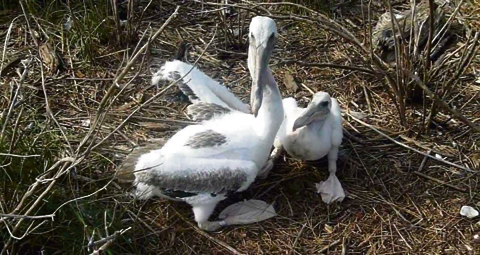May 8 | ![]() 0 COMMENTS
0 COMMENTS ![]() print
print

Evolution’s ultimate wisdom is belief in survival of the weakest
Fr Ronald Rolheiser
Evolution, Charles Darwin famously stated, works through the survival of the fittest. Christianity, on the other hand, is committed to the survival of the weakest. But how do we square our Christian ideal of making a preferential option for the weak with evolution?
Nature is evolutionary and, inside of that, we can perceive a wisdom that clearly manifests intelligence, intent, spirit, and design. And perhaps nowhere is this more evident than how in the process of evolution we see nature becoming ever-more unified, complex, and conscious.
However, how God’s intelligence and intent are reflected inside of that is not always evident because nature can be so cruel and brutal. In order to survive, every element in nature has to be cannibalistic and eat other parts of nature. Only the fittest get to survive. There’s a harsh cruelty in that. In highlighting how cruel and unfair nature can be, commentators often cite the example of the second pelican born to white pelicans. Here’s how cruel and unfair is its situation: Female white pelicans normally lay two eggs, but they lay them several days apart so that the first chick hatches several days before the second chick. This gives the first chick a head-start and by the time the second chick hatches, the first chick is bigger and stronger. It then acts aggressively towards the second chick, grabbing its food and pushing it out of the nest. There, ignored by its mother, the second chick normal dies of starvation, despite its efforts to find its way back into the nest. Only one in ten second chicks survives. And here’s nature’s cruel logic in this: That second chick is hatched by nature as an insurance-policy, in case the first chick is weak or dies. Barring that, it is doomed to die, ostracised, hungry, blindly grasping for food and its mother’s attention as it starves to death. But this cruelty works as an evolutionary strategy. White pelicans have survived for 30 million years, but at the cost of millions of its own species dying cruelly.
A certain intelligence is certainly evident in this, but where is the compassion? Did a compassionate God really design this? The intelligence in nature’s strategy of the survival of the fittest is clear. Each species, unless unnaturally interfered with from the outside, is forever producing healthier, more robust, more adaptable members. Such, it seems, is nature’s wisdom and design—up to a point.
Certain scientists such as Pierre Teilhard de Chardin suggest that physical evolution has reached its apex, its highest degree of unity, complexity and consciousness, inside the central nervous system and brain of the human person and that evolution has now taken a leap (just as it did when consciousness leapt out of raw biology and as it did when self- consciousness leapt out of simple consciousness) so that now meaningful evolution is no longer about gaining further physical strength and adaptability. Rather meaningful evolution is now concerned with the social and the spiritual, that is, with social and spiritual strength.
And in a Christian understanding of things, this means that meaningful evolution is now about human beings using their self-consciousness to turn back and help nature to protect and nurture its second pelicans. Meaningful evolution now is no longer about having the strong grow stronger, but about having the weak, that part of nature that nature herself, to this point, has not been able to nurture, grow strong.
Why? What’s nature’s interest in the weak? Why shouldn’t nature be happy to have the weak weeded out? Does God have an interest in the weak that nature does not?
No, nature too is very interested in the survival of the weak and is calling upon the help of human beings to bring this about. Nature is interested in the survival of the weak because vulnerability and weakness bring something to nature that is absent when it is only concerned with the survival of the fittest and with producing ever-stronger, more robust, and more adaptable species and individuals. What the weak add to nature are character and compassion, which are the central ingredients needed to bring about unity, complexity, and consciousness at the social and spiritual level.
When God created human beings at the beginning of time, God charged them with the responsibility of ‘dominion,’ of ruling over nature. What’s contained in that mandate is not an order or permission to dominate over nature and use nature in whatever fashion we desire. The mandate is rather that of ‘watching over,’ of tending the garden, of being wise stewards, and of helping nature do things that, in its unconscious state, it cannot do, namely, protect and nurture the weak, the second pelicans.
The second-century theologian, Irenaeus, once famously said: The glory of God is the human being fully alive! In our own time, Gustavo Gutierrez, generally credited with being the father of liberation theology, recast that dictum to say: “The glory of God is the poor person fully alive!” And that is as well the ultimate glory of nature.
— Fr Ronald Rolheiser is a Catholic priest and member of the Missionary Oblates of Mary Immaculate. He is president of the Oblate School of
Theology in San Antonio, Texas. Visit his website at www.ronrolheiser.com










